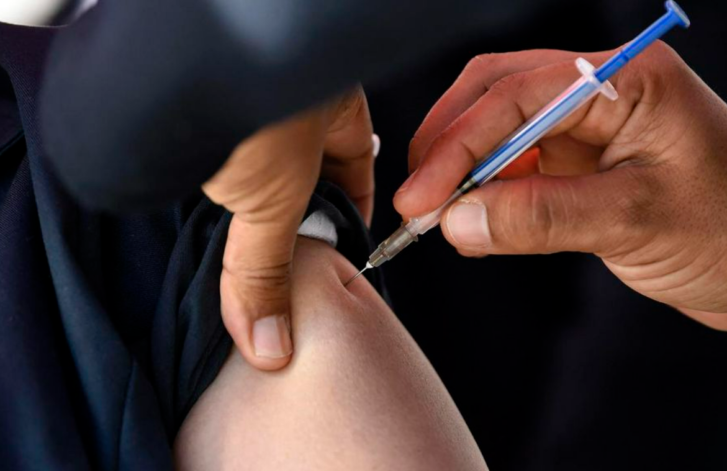Paper claiming good results for disproven medication draws a lot of controversy — after it drew a big audience online.
Philip Cohen says he wasn’t looking for controversy, just compiling an annual report.
He runs a pre-print server — an open archive where social-science researchers share preliminary versions of manuscripts. He thought he’d see what the most viewed paper of the year was.
He didn’t like what he found. “I had a look at it, and it was troubling.”
It had more than 10,000 downloads, putting it in the top one per cent of all papers on the pre-print, called SocArXiv. And it claimed ivermectin, a disproven COVID-19 cure, had curbed hospitalizations from the virus in Mexico City.
Cohen, a U.S. sociology professor, raised his concerns in a December post on the site called “When SocArXiv gets bad papers,” writing, “the paper is either very poor quality or else deliberately false and misleading” and “we are disappointed that it has been very popular.” SocArXiv’s steering committee withdrew the paper last week — a first for the server, Cohen said.
The reaction was swift.

“We find it extremely unethical, colonialist, and authoritarian that in the absence of a serious argument, you shut a work down based on political motivations due to the current divisions in your own country,” stated a seven-page response delivered that same day by six of the paper’s seven authors. They said they made it clear from the beginning that the paper was not an experiment but an observational study and argued Cohen removed it from SocArXiv for political reasons.
It’s a case that shows how global misinformation networks around ivermectin, an antiparasitic medication that’s been falsely touted as a COVID cure, take up and amplify shaky science to defend their cause, raising questions about how blurred lines between science and politics are skewing what can be considered evidence.
The story began more than a year ago when the Mexico City government, battling surging COVID-19 cases, distributed the controversial treatment to tens of thousands of its citizens. Months later, as doubts grew about ivermectin’s efficacy against COVID-19, a group of city government officials analyzed the intervention and declared that it had worked.
They published those findings in Cohen’s server.
Ivermectin, developed in the 1970s, has been touted around the world as a COVID-19 antidote despite scientific evidence pointing to the contrary. The World Health Organization, Health Canada, Mexico’s federal health ministry and other health bodies have warned against its use for COVID-19. The Canadian-led TOGETHER trial, the largest placebo control trial for COVID in the world to date, found it offered no significant benefit.
Still, the drug continues to be promoted as a preventative and treatment for the virus, particularly by those who question vaccines and public health measures. Recent Star reporting revealed ivermectin is being prescribed by a covert network of Canadian doctors.SKIP ADVERTISEMENT
The paper, written by seven Mexico City government officials, and called “Ivermectin and the odds of hospitalization due to COVID-19: evidence from a quasi-experimental analysis based on a public intervention in Mexico City,” appeared on SocArXiv in May 2021.
Nine months later, the paper came back into the limelight last week when Mexican publication Animal Politico reported the Mexico City government spent more than 29 million pesos (about $1.8 million Canadian) distributing disproven COVID-19 treatments.
The paper “is disguised as scientific work but isn’t a proper rigorous scientific contribution,” said Juan Pablo Pardo-Guerra, a sociologist at the University of California San Diego.
Unlike an academic journal, which requires papers to undergo peer review, pre-print servers like SocArXiv — a small, volunteer-run site — briefly screen papers before posting them, Cohen said.
Following the Animal Politico piece, Pardo-Guerra called on SocArXiv to remove the “deeply problematic and unethical” pre-print and ban its authors from the platform.
José Merino, head of the city government’s Digital Agency for Public Innovation and lead author on the study, said the paper “does not offer clinical support for ivermectin use, it evaluates a public health program.” However, the paper is among a body of “evidence” ivermectin proponents cite in defence of its use against COVID-19. Such studies are often published in pre-print servers or what experts call predatory journals, characterized by errors, shoddy methods, and in some cases, hints of deception.
On Dec. 28, 2020, during the pandemic’s second wave, Mexico City began distributing medical kits containing ivermectin, acetaminophen and aspirin to patients with mild symptoms. Facing backlash for the policy as doubts grew over ivermectin’s usefulness, the seven government officials analyzed the intervention and claimed the “ivermectin-based kits” curbed COVID-19 hospitalizations.

More than 309,000 Mexican residents — or one in 412 — have died from COVID-19, according to the New York Times. However, health officials have said Mexico’s true pandemic death toll likely far exceeds the official count.
The paper found patients who got the kits were up to 76 per cent less likely to be admitted to hospital than those who did not, comparing them to a “control group” of people who had tested positive for the virus in December 2020, before the intervention began.
“That’s fundamentally a problem because these different times in the pandemic had very different levels of occupancy in hospitals,” Pardo-Guerra said.
Despite the kit containing three different medications, the authors concluded that “the study supports ivermectin-based interventions to assuage the effects of the COVID-19 pandemic on the health system.” Experts, though, say it’s a stretch for the authors — who looked retrospectively at observational data on who got the kits and whether they were hospitalized — to draw conclusions about ivermectin, when they do not know if people even took the medicine.
“When you look at the design of this paper … what they’re actually showing are the characteristics of people who agreed to get the kit, but not really the impact of the kit itself,” said Omar Yaxmehen Bello-Chavolla, medical researcher and associate professor at the National Autonomous University of Mexico.
To see if a medicine works, researchers need to conduct a double-blind clinical trial, where participants are recruited and randomly administered either a treatment or a placebo, Pardo-Guerra said. Researchers also need to control for external factors — like socioeconomic status — that could skew the outcome.
“All in all, there is no way (the authors) can say anything about ivermectin with this data,” Pardo-Guerra said.
Experts have also questioned the ethics of the Mexico City government giving tens of thousands of people an unproven treatment in the first place. (In an op-ed for Mexican cultural and political magazine Nexos, Pardo-Guerra said the program recalled the U.S. government’s infamous experiment infecting hundreds of African-American men with syphilis, killing more than 100, in Tuskegee, Alabama in the 1900s.)
While Bello-Chavolla stopped short of calling the Mexico City government’s program an “experiment,” he said it did not obtain informed consent or provide sufficient information to patients getting the ivermectin.
“I think it was careless public policy with a medication that is not approved for COVID-19,” he said.
Government official and lead author Merino disputed the notion that prescribing patients a medicine for off-label use required informed consent. What’s more, the seven authors, from various branches of the municipal government, did not declare a conflict of interest in the study they conducted on their own government’s policy.
“It is GREAT news to be able to validate a public policy that allowed reducing health impacts from covid19,” Merino tweeted in Spanish at the time.
Mexico City’s Ministry of Health issued a statement saying the inclusion of ivermectin in the city’s medical kits was supported by the evidence available at the time, in late 2020. Despite the positive effects claimed in the paper, the city stopped administering it in September 2021 after the federal government did not include it in its clinical guide for COVID-19 treatment.
Saul Caballero, the seventh author who did not sign on to the group response, tweeted in Spanish Monday apologizing for any possible damage the paper caused and applauding SocArXiv’s decision to withdraw the “scientifically false” article.
Merino said Caballero, who used to work for him at the Digital Agency for Public Innovation, was “fired from the agency for reasons unrelated to the paper.” When asked if Caballero’s apology discredited the paper, Merino said “not at all.”
“What would discredit the paper is someone using the data and code, that we made public, and finding a different result.”
But the contention regarding the paper is not in its basic assessment of the relationship between the receipt of medical kits for COVID-19 and hospital admissions, but in the way it frames ivermectin as an effective treatment for the virus, contributing to a global misinformation campaign.
Merino said he understands that “in the U.S., for instance, the use of ivermectin has been promoted by groups also opposing vaccines.”
But in the case of Mexico City, he said, “as soon as vaccines were available we devoted all efforts there.” Ninety-nine per cent of eligible adults in the city had received at least one COVID-19 shot as of Oct. 15, Bloomberg reported.
Ivermectin is a safe and cheap medication available over the counter in Mexico. Unlike Canada and the U.S., where there have been reports of ivermectin poisoning from people self-administering high doses or consuming the version meant for animals, no adverse reactions were reported out of the Mexico City government’s intervention.
However, data from the program shows those who got a kit reported, on average, a longer time between symptom onset and hospitalization than those who didn’t, suggesting those who were given the ivermectin may have delayed seeking further medical care, Bello-Chavolla said.
“That delay in care for COVID-19, particularly before vaccines, could have been very detrimental to care.”
Article From: The Star
Author: Lex Harvey

